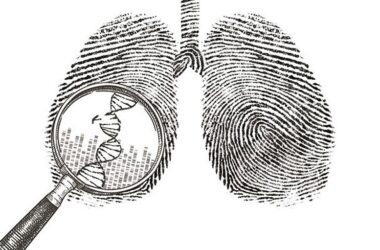
Une nouvelle étude de l’Université d’Oxford a révélé que les patients prenant des statines avaient moins de préjugés émotionnels négatifs.
Les statines ont été associées à une réduction des préjugés émotionnels négatifs.
Avec 17,3 millions d’adultes américains touchés, la dépression est l’un des troubles mentaux les plus répandus dans le pays. Une humeur morose ou dépressive qui dure deux semaines ou plus est considérée comme une dépression majeure.
La dépression se distingue des sautes d’humeur courantes et des brèves réactions émotionnelles aux problèmes de la vie quotidienne. La dépression peut devenir un problème médical grave, surtout si elle est récurrente et d’intensité modérée à sévère. La personne atteinte peut ressentir une grande souffrance et avoir de mauvais résultats au travail, à l’école et dans sa famille. Dans le pire des cas, la dépression peut aboutir au suicide.
Depuis leur introduction à la fin des années 1980 pour prévenir les crises cardiaques et les accidents vasculaires cérébraux, les statines ont été saluées comme un médicament miracle et prescrites à des dizaines de millions de personnes. Cependant, certaines recherches ont suggéré que ces médicaments pourraient avoir d’autres avantages, notamment en matière de santé mentale. Une étude récente examine l’impact des statines sur le biais émotionnel, un facteur de risque de dépression. L’étude est publiée dans Biological Psychiatry et a été publiée par Elsevier.
L’étude observationnelle en ligne a été réalisée entre avril 2020 et février 2021 par une équipe de chercheurs de l’Université d’Oxford à Oxford, au Royaume-Uni, sous la direction d’Amy Gillespie, docteur en médecine. À l’heure actuelle, le SARS-CoV-2 epidemic was at its peak, and there was a significant increase in the prevalence of psychiatric disorders as well as worldwide stress levels.
More than 2000 participants in the UK kept records of their current psychiatric symptoms, medications, and other aspects of their way of life. In order to assess memory, reward, and emotion processing—all of which are connected to depression vulnerability—they also completed cognitive activities. In one experiment, participants had to determine the emotional state of faces that expressed various levels of dread, happiness, sorrow, disgust, anger, or terror.
The vast majority of subjects (84%) were not taking either medication, but a small group were either taking only statins (4%), only a different class of anti-hypertension medication (6%), or both (5%).
Participants taking statins were less likely to recognize fearful or angry faces and more likely to report them as positive, indicating they had reduced negative emotional bias.
Dr. Gillespie said, “We found that taking a statin medication was associated with significantly lower levels of negative emotional bias when interpreting facial expressions; this was not seen with other medications, such as blood pressure medications.”
“We know that reducing negative emotional bias can be important for the treatment of depression,” said Dr. Gillespie. “Our findings are important as they provide evidence that statins may provide protection against depression. Of particular note, we saw these results during the high-stress context of the COVID-19 pandemic. Our findings also provide the first potential psychological explanation of statins’ mental health benefits,” in that they seem to affect emotion processing. It remains unclear exactly how statins could protect against mental illness, but one possibility is that they may work through anti-inflammatory mechanisms, which have also been implicated in depression.
John Krystal, MD, Editor of Biological Psychiatry, said of the work, “Statins are among the most commonly prescribed medications based on their ability to prevent heart attacks and strokes. These new data raise the possibility that some of their positive effects on health could be mediated by the effects of these drugs on the brain that promote emotional resilience.”
“Researchers should prioritize investigating the possible use of statins as a preventative intervention for depression. Before use in clinical practice, it is important that future research confirms the potential psychological benefits of statins through controlled, randomized clinical trials,” Dr. Gillespie concluded.
Reference: “Associations Between Statin Use and Negative Affective Bias During COVID-19: An Observational, Longitudinal UK Study Investigating Depression Vulnerability” by Amy L. Gillespie, Chloe Wigg, Indra Van Assche, Susannah E. Murphy and Catherine J. Harmer, 19 March 2022, Biological Psychiatry.
DOI: 10.1016/j.biopsych.2022.03.009



